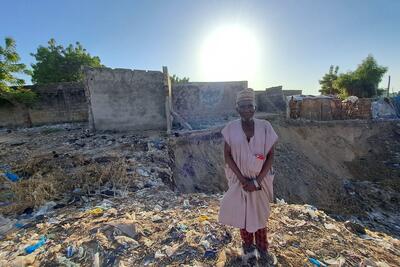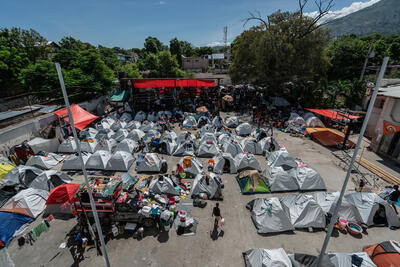Internal displacement

People become internally displaced when they are forced to leave their homes due to conflict, violence, human rights violations, natural hazards, or other crises within the borders of their country. This can include situations where people move voluntarily to seek safety or to access essential services.
In any given year, millions of people are displaced worldwide, and they are officially referred to as internally displaced persons (IDPs). Internal displacement is often a protracted situation – many people remain in limbo for years in IDP camps, urban slums or other areas of refuge.
The Guiding Principles on Internal Displacement (the Guiding Principles), presented to the UN Commission on Human Rights 1998, provide the framework on addressing IDPs’ needs. They restate the rights of IDPs, and they address issues related to protection against displacement, during displacement and return to places of origin, the provision of humanitarian assistance, and IDPs’ resettlement and integration into host communities.
National Governments bear the primary responsibility for IDP protection and welfare. But if those Governments are unable or unwilling to meet their responsibilities, the international community promotes and reinforces efforts to ensure protection, assistance and solutions for IDPs.
When humanitarian organizations are asked to step in, they address IDPs’ needs, including providing assistance such as shelter, food, water and medical care.
At the country level, the Humanitarian Coordinator has a vital role in ensuring a comprehensive humanitarian response to internal displacement.
Durable solutions for IDPs are detailed in the IASC Framework on Durable Solutions for Internally Displaced Persons.
To promote the protection and assistance of IDPs, OCHA works closely with Security Council bodies, UN agencies, the Special Rapporteur on the Human Rights of IDPs, NGOs and UN Secretariat entities.
- Read the GP20 Compilation of National Practices: Working Together Better to Prevent, Address and Find Durable Solutions to Internal Displacement.
- Read Shining A Light on Internal Displacement: A Vision for the Future (from the UN Secretary-General’s High-Level Panel on Internal Displacement).
- Read OCHA on Message: Internal Displacement.
- Read Internal displacement in armed conflict


